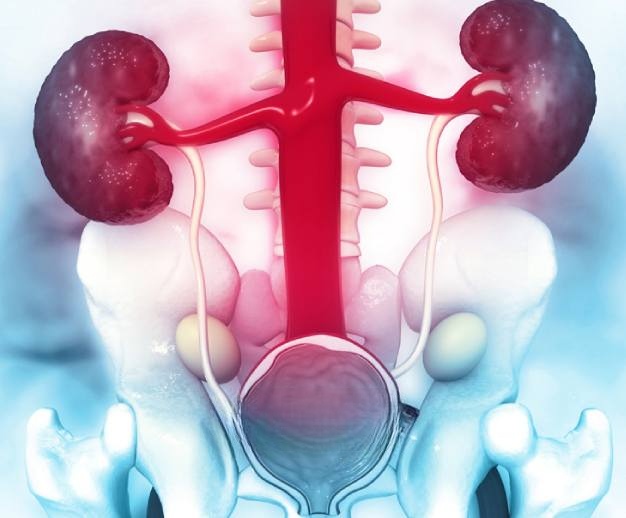Ureteral Cancer

Ureteral Cancer Doctor in Kolkata
Ureteral cancer, or cancer of the ureter, occurs when abnormal cell growth develops in the inner lining of the ureters—the tubes that connect the kidneys to the bladder. As a key component of the urinary tract, the ureters transfer urine from one’s kidneys to the bladder. For ureteral cancer treatment in Kolkata, reach out to the oncologist.
Symptoms of Ureteral Cancer
Signs and symptoms of ureteral cancer may include:
- Blood in the urine
- Back pain
- Pain during urination
- Unintentional weight loss
- Fatigue
In case you notice any of these symptoms, the ureteral oncologist in Kolkata, can help you thoroughly evaluate them.
Causes of Ureteral Cancer
Several factors can elevate the risk of ureteral cancer, including:
Age
The chances of developing ureteral cancer increases with age, with most diagnoses occurring in individuals in their 70s and 80s.
History of Bladder or Kidney Cancer
Those who have previously been diagnosed with bladder or kidney cancer have a high risk of developing ureteral cancer.
Smoking
Tobacco use significantly raises the risk of ureteral cancer and other urinary tract cancers, including those of the kidneys and bladder.
Family History of Cancer
Conditions like Lynch syndrome or hereditary nonpolyposis colorectal cancer (HNPCC), increase the risk of various cancers, including ureteral cancer. If you have a strong family history of cancer, it is advisable to discuss this with the doctor, who may recommend genetic testing for Lynch syndrome and other inherited cancer syndromes.


Types of Ureteral Cancer
Ureteral cancer can be classified into several types based on the cells involved. The main types include:
Transitional Cell Carcinoma (TCC)
The most common type of ureteral cancer, it originates in the transitional cells that line the ureters. TCC can also occur in other parts of the urinary tract, like the bladder and kidneys.
Squamous Cell Carcinoma
This type arises from squamous cells, which can develop in the ureter, often due to chronic irritation or inflammation, such as from infections or long-term use of urinary catheters.
Adenocarcinoma
A rarer form of ureteral cancer that starts in glandular cells. This type is less common than TCC and may be associated with certain risk factors or conditions.
Small Cell Carcinoma
An uncommon and aggressive type of cancer that starts from neuroendocrine cells. This type is often diagnosed at a more advanced stage.
Other Rare Types
These may include sarcomas or other less common malignancies that can develop in the ureter.

Stages of Ureteral Cancer
Ureteral cancer is generally staged using the TNM system, which assesses the Tumour, Nodes, and Metastasis. The stages are classified as follows:
Stage 0 (Carcinoma in Situ)
Abnormal cells are found in the inner lining of the ureter, but they haven’t invaded deeper tissues.
Stage I
The cancer has invaded the inner layer of the ureter (mucosa) and may have spread to the connective tissue but has not spread to nearby lymph nodes or distant sites.
Stage II
The cancer has grown into the muscle layer of the ureter and may have invaded surrounding fat tissue but remains confined to the ureter. There is no lymph node involvement or distant spread.
Stage III
The cancer has spread to nearby lymph nodes or has invaded surrounding organs or tissues (like the bladder or other parts of the urinary tract) but has not spread to distant sites.
Stage IV
The cancer has metastasized to distant organs or tissues, like the lungs, liver, or bones. This stage indicates advanced disease with significant spread beyond the ureter.

Diagnosis of Ureteral Cancer
The following tests and procedures are used to diagnose ureteral cancer:
Physical Examination
The doctor will inquire about your symptoms and perform a physical exam to gain a better understanding of your condition.
Imaging Tests
These tests help assess the extent of ureteral cancer. Options may include an intravenous pyelogram or CT urography. If CT imaging is not feasible, a magnetic resonance urogram may be considered.
Urine Tests
A urinalysis may be performed to check for abnormalities in your urine. Additionally, a urine cytology test can be used to identify abnormal cells in a urine sample.
Ureteroscopy
In this procedure, a thin, lighted tube called a ureteroscope is inserted through your urethra, passing through the bladder and into the ureters. This allows the doctor to visually inspect the ureters and, if needed, collect a small tissue sample (biopsy) for laboratory analysis.
A pathologist will examine the tissue samples for cancerous signs, potentially including a detailed analysis of gene mutations associated with your cancer.
Tests for Bladder Cancer
Given the high risk of bladder cancer in individuals diagnosed with ureteral cancer, the doctor may use imaging tests or perform a cystoscopy to inspect the bladder for any signs of cancer. Bladder cancer may occur concurrently with ureteral cancer or develop shortly after treatment.
Treatments of Ureteral Cancer
The ureteral oncologist in Kolkata suggests most suitable treatments for this condition. Common treatments for ureteral cancer include:
Chemotherapy
Systemic chemotherapy may be used to kill cancer cells or shrink tumours, particularly in advanced cases or if there’s a risk of metastasis.
Radiation Therapy
Radiation therapy can be employed to target and kill cancer cells, often used in combination with chemotherapy.
Immunotherapy
This treatment enhances the body’s immune response against cancer cells. It may be an option for advanced ureteral cancer or if the cancer has certain genetic markers.
Targeted Therapy
Targeted therapies focus on specific molecular targets associated with cancer cells. These treatments may be used for specific types of ureteral cancer based on genetic profiling.
Frequently Asked Questions
What are the risk factors for developing ureteral cancer in females?
Risk factors include increasing age, a history of bladder or kidney cancer, smoking, chronic urinary tract infections, and a family history of certain cancers, including Lynch syndrome.
What happens in the ureteral cancer 3rd stage?
In Stage III ureteral cancer, the disease has progressed significantly, indicating a more advanced form of cancer.
Can lifestyle changes help reduce the risk of ureteral cancer in males?
Yes, maintaining a healthy lifestyle, avoiding tobacco use, staying hydrated, managing chronic health conditions, and undergoing regular medical check-ups can help reduce the risk of developing ureteral cancer.
How common is ureteral cancer compared to other urinary tract cancers?
Ureteral cancer is relatively rare compared to other urinary tract cancers, such as bladder and kidney cancer.
Can ureteral cancer metastasize to other parts of the body?
Yes, ureteral cancer can metastasize, particularly in advanced stages. Common sites for metastasis include the lymph nodes, lungs, liver, and bones.


